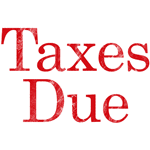

Bankruptcy Myths
5 Bankruptcy Myths:
- Bankruptcy is my only option: Not true, you have options. Talk to your trustee
- Everyone will know and I will be ashamed: Not true, only those people you tell will know
- My children will think I am a failure: If you take control of your financial problems this will teach your children that mistakes happen and you can work towards a solution
- I will not be able to live with myself: Taking control of your life is a self-esteem booster
- Employers will not consider me because of my bankruptcy: Most employers do not ask for a credit check when hiring. If this happens, contact your trustee to ask for advice
Contact the Office of the Superintendent of Canada for more information on bankruptcy and debt solutions. Or please fill out the free bankruptcy evaluation form. To learn more please visit our YouTube Channel. Rumanek & Company have been helping individuals and families overcome debt for more than 25 years.
Contact Rumanek & Company Ltd. for more information on bankruptcy and debt solutions. Or please fill out the free bankruptcy evaluation form. To learn more please visit our YouTube Channel. Rumanek & Company have been helping individuals and families overcome debt for more than 25 years.



